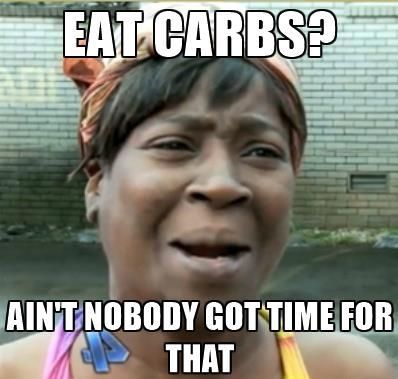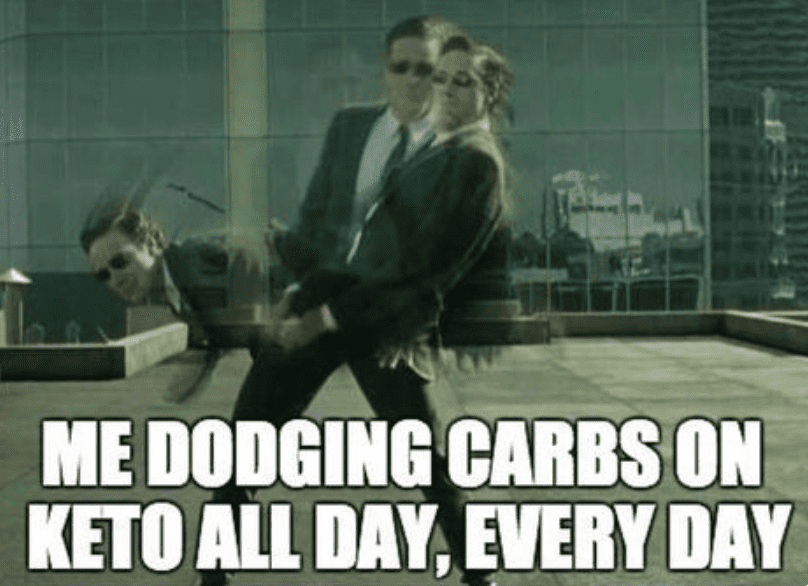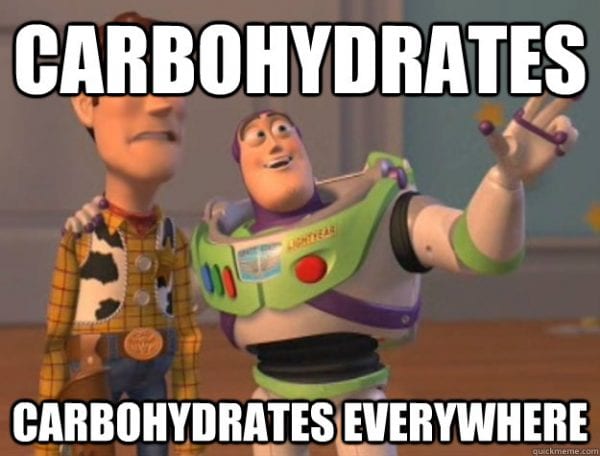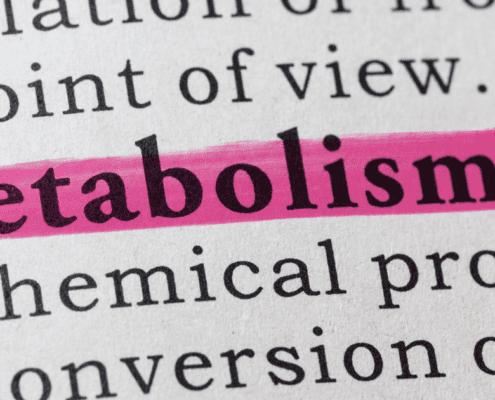The Ketogenic Diet Might Not Work For You
Post last updated April 27, 2022 by Michael Fouts
Read time: 7 minutes
First off, I want to define what the Ketogenic Diet is – because many people say they’re doing “Keto” when they’re not, including whole cookbooks. A textbook Ketogenic diet is high fat, moderate protein, low carb diet, with a macronutrient distribution of 70% Fat, 25% Protein, 5% Carbohydrates. This macro breakdown is critical, in particular 5% carbs, to get your body to accelerate ketone production – a by-product of fat breakdown.

Why is it so popular? I would credit it to 1. Fast initial weight loss, which I’ll talk about in a bit; 2. Something like bacon, an uncommon food for most diets, can be ate to meet the macronutrient distribution. These two things have shock value and trigger interest.
I won’t get into how Ketosis works, but if you want to know more click on the text below.
Here are a few things you should know:
- You don’t have to be on a ketogenic diet to produce ketones. Your body naturally goes through ketosis when you don’t eat for a while: part of your fat gets converted to ketones, like when you’re sleeping and/or in a fasted state (in-between meals or intentional fasting).
- Most people don’t actually get into ketosis, in the sense of using ketones as its primary source of energy; they either eat too many carbs, or protein.
- The body can make sugar from amino acids, so consuming too much protein can stifle you getting into “ketosis.”
- The Ketogenic diet isn’t objectively better or superior to other diets, the diet that you can adhere to long-term and meets your micronutrient requirements will always be the best diet.
- The rapid weight loss achieved when starting a ketogenic diet for the first time comes primarily from water weight (you lose glycogen, stored muscle sugar, and with that you also lose water). This effect usually disappears after a few weeks, which is why most people lose weight initially and then weight loss stalls. This is also the reason why people will re-gain weight when they eat carbs again, and this is partly the reason those that have done keto before thinking carbs are bad for them / make them gain weight.
I’m not going to tell you if the ketogenic diet will work for you or not. Instead, I’m going to highlight some pros and cons, and offer my opinion – from three clickable expandable sections below – on three different scenarios.
Let’s start with some pros and cons.
Pros
- Forces you to be more aware of the food you are eating, almost always a good thing.
- By restricting carbs, this does a few good things:
- It forces you to choose a more vegetable, nut, and protein focused diet. This in general tends to be a healthier practice.
- You won’t snack on lower nutritional value food, like chips and cookies.
- Limiting things like breads and pastas can help with caloric reduction for some; without conscious effort to manage your caloric intake of these food types, these are often consumed in large caloric quantities.
- Helps suppress appetite due to the high fat and protein, both of which provide greater satiety than carbohydrates.
- A possible diet choice for celiac’s or gluten sensitive individuals.
Cons
- Lack of physical performance. Sugar is the reason here, it’s your primary fuel source during intense exercise (think intense enough where you can’t carry a conversation). So, If you are an athlete, or anyone that exercises intensely, if you are doing the ketogenic diet (a proper one at least) eventually you will feel flat and very lethargic. For aerobic exercisers, or for those training aerobically (think you could carry a conversation) then this might be ok.
- Places foods off boundaries. Are you someone who likes cinnamon buns? Well, not anymore because you can’t eat them on this diet…In general I don’t like diet’s that lack flexibility and treat foods as black and white; lack of flexibility decreases long-term adherence and success.
- Knowledge curve. You need to know quite a bit before you start doing a ketogenic diet. You need to research what foods you can eat, and which ones are off limits – especially the ones that might have carbs. Additionally, you need to track your food intake pretty meticulously, at least for a bit, to make sure you aren’t consuming too many carbs. If you have too much protein your body will convert the amino acids, the building blocks of protein, to sugar.
- Social Challenge. It’s not always easy to follow this diet while out with family and friends as we live in a carb-intensive society.

- Mood Swings. Whenever you are in the transition phase from sugar to ketones, you will get quite cranky and irritable. Part of this has to do with you no longer getting your feel-good endorphins from sugar.
- Keto Breath. Having a high concentration of ketone bodies will cause your breath to smell, ranging from fruity to a nail-polish-like.
Whether the Ketogenic Diet might be effective for you will really depend on what you’re trying to do with it. Below are my opinions on three different situations: Weight loss, Building Muscle, and Being an Athlete. Click on the text to see my take.

The above should give you some ideas of whether the ketogenic diet is right for you. Here are a few things you should consider before starting it you still want to try it:
1. I’d recommend getting a blood panel before and regularly during, and have it looked at by your doctor.
2. If you’re currently stressed, low-carb diets are usually not the best choice as it can further compound your body’s cortisol stress response.
The best diet is always going to be something that you can stick to and is practical for you. If keto fits this definition for you, great; if this is true, chances are it’s more of a “keto-ish” type diet. If you want to experiment, I encourage that – there is nothing wrong with that. Just be informed – which you’re doing if you’re reading this post. I’ll end with some input from Andrea Hardy, RD. She says the following about the Ketogenic Diet:
I always ask people – could you see yourself eating this way, day in and day out, for the rest of your life? If the answer is no, it’s probably not a good fit for you. My other concern with keto is I rarely see people do it right, and it lacks fibre, variety, and prebiotic fuel for the good bacteria in your gut. There’s also a lot we still don’t know about the long term safety and implications. My suggestion is: find something more balanced and maintainable.
Till next time,
-Mike






